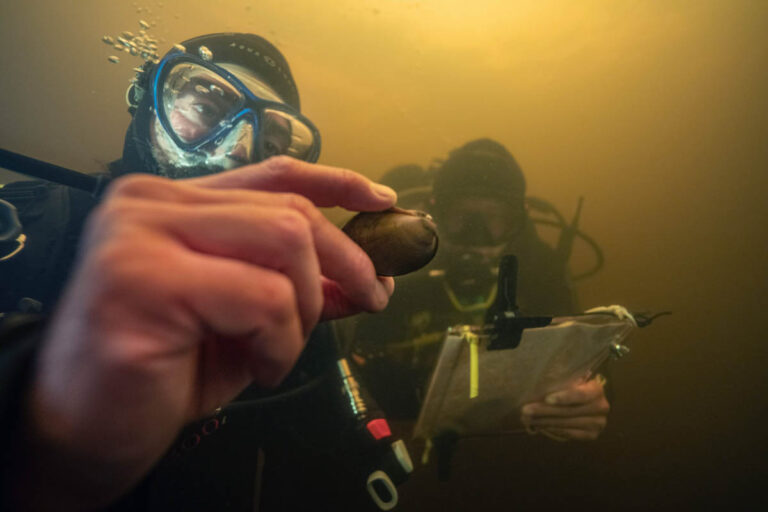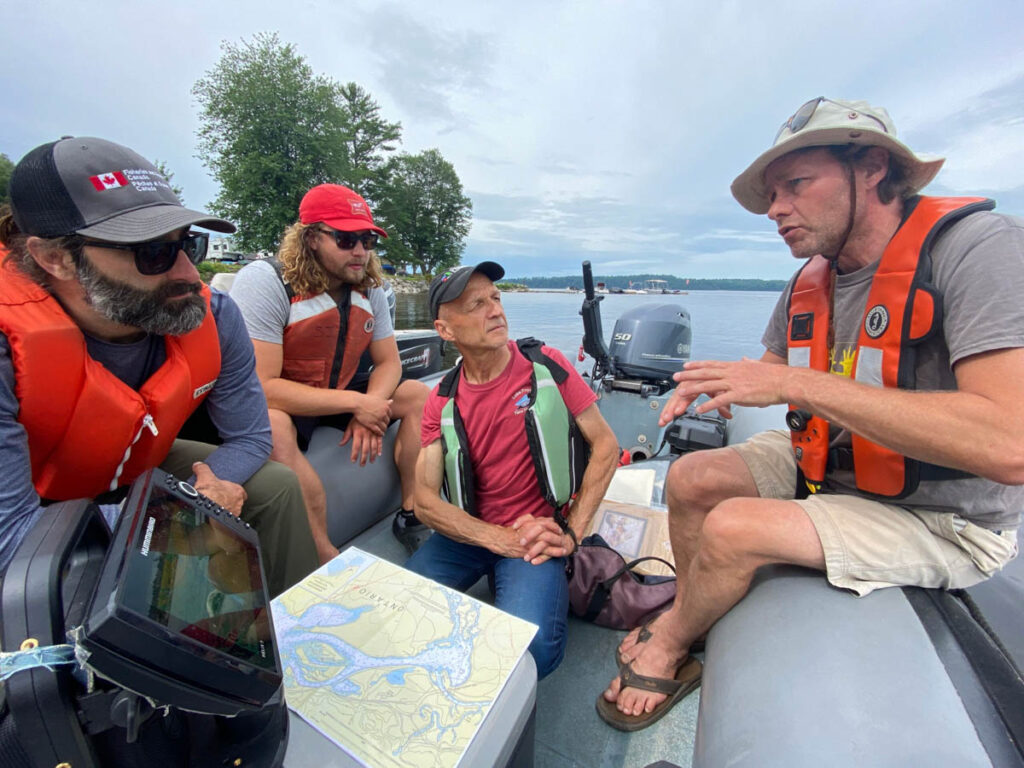In the swift, tannic waters of the Ottawa River we note the presence of an endangered mussel species.
The Hidden Risks of Clinging to the Status Quo
You have probably heard it before: Change is inevitable. Whether technological advancements, economic shifts, or cultural transformations, the world around us constantly evolves. Many people remain comfortable in what they know, maintaining the status quo rather than embracing change. However, this comfort can be deceptive, as clinging to the current state can be as risky, if not more dangerous, than stepping into the unknown.
In scientific diving, adaptation and learning new skills are critical to success. My colleagues and I, working for the Department of Fisheries and Oceans Canada, are constantly reviewing our protocols, shifting techniques to improve safety and productivity.
An Illusion of Safety
The status quo often feels like a safe harbour, a stable point of reference in a turbulent sea. It represents familiarity, predictability, and a sense of control. Yet, this perceived safety is an illusion. In a constantly changing world, standing still can lead to stagnation, missed opportunities, and complacency.
Consider the business world: companies that resist change often find themselves outpaced by more agile competitors. Kodak, once a giant in the photography industry, famously failed to adapt to the digital revolution and subsequently filed for bankruptcy. By clinging to their traditional film business, they ignored the seismic shifts in technology and consumer behaviour, ultimately paying the price for their reluctance to innovate.
We likely know divers who cling to their routines. Certain routines help us stay safe, such as using a checklist to prepare a rebreather for diving. And yet, that same routine can drift toward complacency if we stop paying attention. When I lived across the road from Ginnie Springs, I conducted many hundreds of dives there. I had to force myself to retain a sense of novelty and observation, combining safety routines with a fresh, alert viewpoint, ready to find opportunities for growth and learning at every turn.
The Cost of Inaction
Inaction can be costly. In business, failing to adapt to new circumstances can result in lost opportunities, diminished growth, and decreased resilience. Employees who refrain from learning new skills or adapting to new technologies may limit their career prospects as industries evolve and demand new competencies. The same is true in diving, where people get stuck in old ways, failing to adapt to new technologies and protocols. I’m not suggesting that you buy a new set of scuba gear every years. Your trusty, well-maintained equipment may be perfectly suitable – but is there a new viewpoint in scuba to which you should pay attention? Thought leaders such as Gareth Lock have brought us new insight through his Human Factors training. Will that investment in learning and perception help guide you into a better safety mindset?
Societal changes can render previously acceptable behaviours or practices obsolete or even unacceptable. We used to read articles in prestigious magazines about Nitrox being an unsafe “voodoo gas.” And yet, those rumours were seeded by an anxious Caribbean operator that wanted to attract more divers. The evil voodoo gas dropped the visits to the local chamber and offered longer no-decompression bottom times. When divers dwell longer on the reef, fewer boat turnovers will happen, cutting into the economic viability of a commercial dive operation, or so it seemed. In retrospect, we can now see that adopting Nitrox and giving people more time in the water increased safety and resulted in a growing, more informed population of visiting divers.
The Benefits of Embracing Change
Embracing change can lead to significant rewards. It’s not just about adapting to the new, but about fostering innovation, personal growth, and resilience. It encourages us to abandon our comfort zones and develop new skills, opening up a world of possibilities for personal and professional development.
Taking a new diving class, adopting a healthier lifestyle, or learning a new language are all examples of positive changes that can enrich our lives and open new doors. While these changes may seem initially daunting, the long-term benefits often far outweigh the early discomfort and trepidation.
Finding Balance
Of course, embracing change doesn’t mean abandoning all that is familiar and comfortable. It’s about finding a balance between stability and adaptability. Maintaining certain constants in our lives can provide a sense of grounding and security, while still being open to new experiences and opportunities. A new rebreather may be a significant change for you, but the old familiar checklist protocols are grounding.
By adopting an explorers mindset that embraces change as an opportunity rather than a threat, we can better navigate the uncertainties of life. This involves cultivating resilience, being proactive about personal and professional development, and staying informed about the trends and shifts in our environment and sport.
There are risks and costs to action. But they are far less than the long range risks of comfortable inaction.
John F. Kennedy
While the status quo may seem safe, it carries risks. In a constantly evolving world, finding a balance between stability and adaptability is critical to successfully navigating the future.








